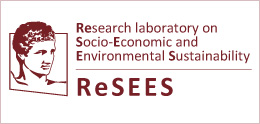CATALYST Project Report on Skills Gaps and Sustainability Transformation Presented at ICSD 2023
On 19th of September 2023, Ms. Lydia Papadaki (Researcher, AUEB; ATHENA RC) presented the results of the Report “A skills gaps and needs assessment for the sustainability transformation” that was developed under the CATALYST Erasmus+ project at the 11th Annual International Conference on Sustainable Development (ICSD) at the No. 4 session entitled “Progress Made by the Private Sector in Meeting the SDGs”.
The CATALYST project—the “European VET Excellence Centre for Leading Sustainable Systems and Business Transformation”—supports the new industrial and SME strategies and the European Green Deal with this study. In autumn 2022, Austria, Germany, Greece, North Macedonia, and Portugal performed online surveys and local language interviews. 504 professionals and SME representatives completed the survey; 64 participated in 1:1 interviews. The research seeks to investigate the business sector’s sustainability and governance practises and identify market skills gaps.
The study’s findings were validated by a series of roundtables in all five countries from November to December 2022 that brought together businesses, educational institutions, public bodies, and civil society organisations to discuss sustainability challenges and opportunities. The national roundtables discussed policies, regulations, tactics, business, and education to define competencies. Businesses faced financial restrictions, a lack of human resources, opposition to change, and legislative inconsistency when implementing sustainable practises. Management, analysis, problem-solving, and sustainability problems including legislation were identified as key development areas.
The survey and roundtables recommended upskilling staff, promoting collaboration amongst varied industries, implementing regulations to foster cooperation, and providing sustainability awareness training. The CATALYST project focuses on influencing attitudes towards sustainability, using real-world examples, and showing the benefits of sustainable practises in future courses. Read our Conference paper in this link.




 76 Patission Str.
76 Patission Str. 30 2108203 455
30 2108203 455
